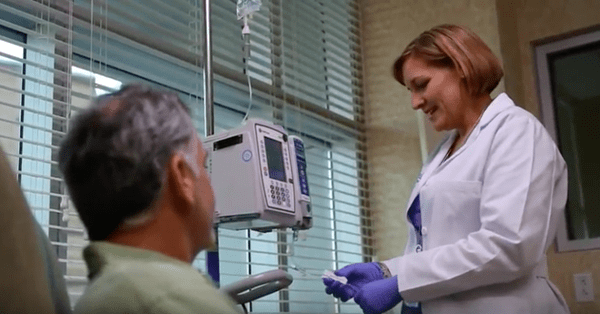How Weight and Height Can Affect Your Prostate Cancer Risk
Height and weight may be linked to a man’s risk of getting and dying from prostate cancer, a recent study finds.
In the study, published in the journal BMC Medicine, researchers reviewed health data for 141,896 men in Europe who participated in a large study designed to investigate the link between diet, environmental factors and lifestyle and the risk of cancer. Men who had previously been diagnosed with cancer were excluded from the study.
Researchers found that after an average of nearly 14 years, about 7,000 of the nearly 142,000 men in the study were diagnosed with prostate cancer, with an average age at diagnosis of about 68 years old. Nine hundred thirty-four of these men died from the disease.
The study found the taller and larger the man, the more likely he was to be diagnosed with prostate cancer. Men were 13 percent more likely to develop advanced prostate cancer and 18 percent more likely to die from the disease for every four-inch increase in their waist circumference. For every almost four-inch increase in height, the men were 21 percent more likely to be diagnosed with high-grade prostate cancer and 17 percent more likely to die from the disease.
Understanding the Connection Between Height, Weight & Prostate Cancer Risk
According to the study’s authors, the relationship between body size and prostate cancer risk isn’t clear because previous studies have only examined the risk of a “combined category of aggressive disease” rather than differentiating between types of tumors. This study is likely one of the first of its kind to do so. Also, previous research has indicated there may be a link between prostate cancer and height, but this study went a step further by examining whether height is a factor in the risk of diagnosis for either slow or fast-growing prostate tumors.
In this study, height wasn’t connected to total prostate cancer risk or the development of slow-growing tumors. However, it was linked to an increased risk of being diagnosed with aggressive prostate cancer and dying from this disease.
But as other research already has suggested, weight and body mass index may play an even greater role in cancer risk. In the study, men who were heavier and had a larger waist circumference were more likely to be diagnosed with aggressive prostate cancer. This may be because men who are obese are less likely to be diagnosed with cancer or have their cancer detected early, and because they may appear to have a lower concentration of prostate-specific antigen (PSA), a protein that doctors search for in the blood to determine whether a man may have prostate cancer. According to the study’s researchers, men who are obese also may be less likely to have a biopsy and may have larger prostates, which makes detecting their cancer more challenging. The combination of the lack of preventative care, bodily differences and the lack of early detection may make it more likely that obese men are diagnosed once the disease has progressed or become more aggressive.
Though there’s nothing you can do to change your height, lifestyle factors can affect obesity and in turn affect your cancer risk. The best thing you can do to lower your risk of prostate and other cancers is to lead as healthy a lifestyle as possible. Losing weight, in particular, can lower your risk since waist circumference may be linked to the development of aggressive cancer, as the study indicates.
There’s ongoing debate about the benefits of prostate cancer screening, since false positives are a possibility, so you should talk to your doctor, review your medical history and discuss your risk factors to determine whether you need to undergo screening. Making an informed decision could help you stay healthy or lead to early detection, which may save your life if you are diagnosed.
Request an appointment with an Orlando Health physician
Your treatment plan may include surgery, radiation therapy, hormone therapy and chemotherapy. If you are diagnosed with slow-growing, early-stage cancer, we will monitor you with regular testing and check-ups.
Request an Appointment Today










